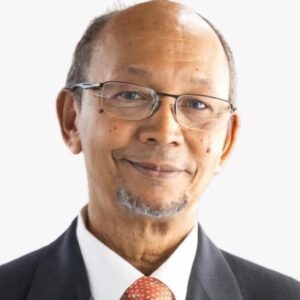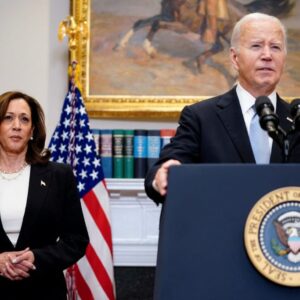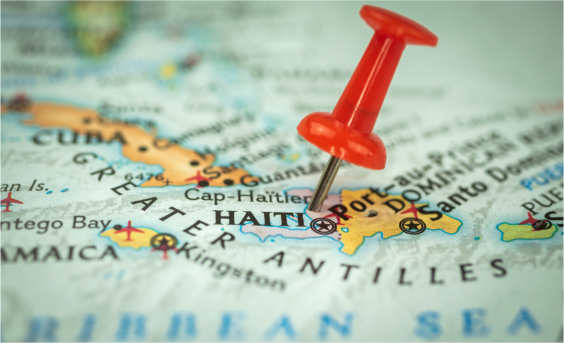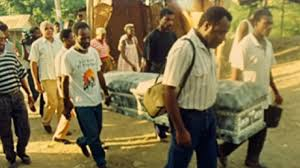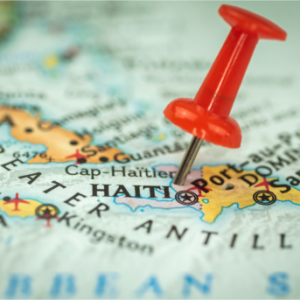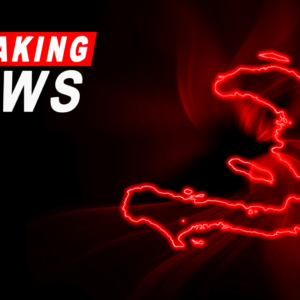P-to-P, April 1, 2024 [AlterPresse] — The members of the Presidential Transitional Council should seize the current momentum, with a view to establishing, in the immediate future, an effective transitional power in Haiti, advocates economist and political scientist Joseph Harold Pierre, in a special interview broadcast on the private station AlterRadio 106.1 Fm and followed by the online agency AlterPresse.
The population could end up losing confidence if the protagonists take time to set up this Presidential Transitional Council, warns Joseph Harold Pierre.
It calls for inventing a formula to facilitate its implementation with more elegance.
Even if he minimizes the political obstacles, Joseph Harold Pierre does not rule out the possibility that there are other sectors which could seek to have control over the Presidential Transitional Council.
The process of setting up the said Council is likely to take much longer, due to possible political negotiations, he believes.
The sectors, which cannot get their president elected, will do everything to obtain the post of prime minister, he anticipates.
The official appointment of members of the Presidential Transitional Council by the interim council of ministers would encounter difficultiesa source close to the steps to establish this entity told AlterPresse.
This source accuses the de facto government of dragging its feet in the process of publishing a related decree in the official newspaper of the republic “Le Moniteur”.
The election of the president of the Transitional Presidential Council should take place after the installation of the entity at the presidential palace, according to a draft decree relating to the creation, organization and functioning of the Council, consulted by AlterPresse.
The Presidential Council includes voting members Edgard Leblanc Fils of the Collective of Political Parties of January 30, 2023, Leslie Voltaire of the political party Avalanche familyLouis Gérald Gilles from the agreement of December 21, 2022, Fritz Alphonse Jean from the Montana agreement, Laurent St Cyr from the private sector, Emmanuel Vertilaire from the political party Son of Dessalineswho initially refused to be part of this structure.
The two non-voting members are Frinel Joseph from civil society and Régine Abraham from the inter-religious sector.
Joseph Harold Pierre calls for accelerating the process of establishing the Presidential Transitional Council, so that it can tackle, without wasting time, concrete problems in Haiti, particularly those related to security.
This Presidential Transitional Council is made up of moderate personalities, who inspire a minimum of confidence in the population and who have the training and the will to guide the progress of political affairs, he welcomes.
The economist and political scientist claims to support the Presidential Transitional Council, even though the latter reinforces in Haiti a political culture focused entirely on irregularity.
“It’s pretty serious,” he said.
What makes this Transitional Presidential Council possible lies in the total absence of political culture, political elites and real political parties in Haiti, he explains.
“Culturally and traditionally, since 1990, we have referred to the Court of Cassation to manage such political crises (in the absence of the Senate). What prevents us from favoring this tradition lies in a total absence of political culture in Haiti.”
The problem with the Presidential Transitional Council formula is that anyone can aspire to become president. It is enough for there to be a situation of unrest and chaos, points out Joseph Harold Pierre, emphasizing how no country can function without an institution.
Should we negotiate with armed gangs?
Economist and political scientist Joseph Harold Pierre says he is opposed to gangs being put on the negotiating table.
Even if they enjoy international visibility, the armed groups are made up of bandits, have no ideological motive and are fragmented, he argues.
He says he is against any negotiation with armed gangs, who have perpetrated so many assassinations, so many crimes, so many massacres and so much social destruction across Haiti.
“Dialogue with the gangs would be to justify their criminal acts. “It is the greatest harm that can be done to society, morally, politically and ideologically.”
Nothing will change as long as the Presidential Transitional Council does not seek to negotiate with the international community to find a formula allowing control of armed gangs.
During the first three months of 2024, more than 1,550 people were killed in armed violence in Haiti, according to a report from the United Nations High Commissioner for Human Rights, published on Thursday March 28, 2024.
Since Thursday February 29, 2024, armed gangs ransacked and burned various private and public infrastructures in the metropolitan area of the capital, Port-au-Princeeven preventing the return to Haiti – blocked in Puerto Rico since Tuesday March 5, 2024 – of the de facto prime minister Ariel Henry, forced to resign from his position, Monday March 11, 2024under American pressure. [emb rc apr 1er/04/2024 12:20]

